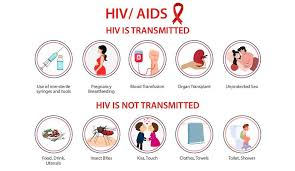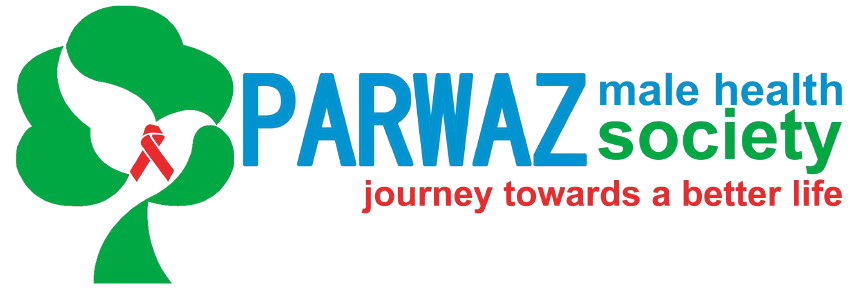
Common Myths Related to HIV
Human immunodeficiency virus (HIV) is a virus that attacks the body’s immune system. Acquired immunodeficiency syndrome (AIDS) occurs at the most advanced stage of infection.
HIV targets the body’s white blood cells, weakening the immune system. This makes it easier to get sick with diseases like tuberculosis, infections and some cancers.
HIV is spread from the body fluids of an infected person, including blood, breast milk, semen and vaginal fluids. It is not spread by kisses, hugs or sharing food. It can also spread from a mother to her baby.
HIV can be prevented and treated with antiretroviral therapy (ART). Untreated HIV can progress to AIDS, often after many years.
WHO now defines Advanced HIV Disease (AHD) as CD4 cell count less than 200 cells/mm3 or WHO stage 3 or 4 in adults and adolescents. All children younger than 5 years of age living with HIV are considered to have advanced HIV disease.
1. ‘HIV and AIDS are the same thing’
HIV is the name of a virus. AIDS (what we now call late stage or advanced HIV) is the name for a collection of illnesses caused by this virus.
You can’t get an AIDS diagnosis unless you’re already HIV positive, but many people who have HIV will never have AIDS. This is because advances in HIV treatment mean that HIV is now a long term manageable condition.
2. ‘HIV is a death sentence’
Before advances in HIV treatment, someone diagnosed with HIV in the 1980s and early 1990s may have only been given a few years to live. But today people living with HIV can live long healthy lives, if they are on treatment.
People with HIV can expect to live as long as their HIV negative peers. We are now seeing the first generation of HIV positive people growing old, living with HIV. In fact, the over 50s are the fastest growing group of people living with HIV. The challenge is now to support people to live well with HIV as they get older.
3. ‘If you have sex with someone living with HIV, you will get HIV too’
People taking effective HIV treatment cannot pass on HIV through sex.
Effective treatment reduces the amount of the virus (your viral load) to very low, undetectable levels. Being undetectable means the level of HIV in your blood is so low, it can’t be detected by the tests used to measure viral load and this means you cannot pass on the virus.
4. ‘People with HIV can pass it on to others during everyday social contact’
HIV can only be passed on when one person’s body fluids (e.g. blood, semen and fluids from the vagina, but not saliva) get inside another person’s body. HIV is transmitted by vaginal/frontal sex, anal sex, oral sex (though very rarely), and sharing injecting equipment. A person living with HIV can’t pass on the virus if their viral load is undetectable.
The virus cannot be transmitted by kissing, shaking hands, hugging or from toilet seats. It can also not be transmitted by tears, sweat, saliva and spitting, urine or faeces (poo).
It is absolutely safe to share objects someone with HIV has touched or used to eat or drink from, and there is no risk of transmission from swimming pools, showers, hot tubs or towels.
Sharing a razor presents a small theoretical risk of transmitting HIV, but sharing razors is never advisable due to the possibility of transmitting bacterial and viral infections including hepatitis B or hepatitis C.
5. ‘People with HIV can’t have children’
You can have children if you are living with HIV if you are on effective treatment and have an undetectable viral load – the risk of HIV being passed on to the baby is just 0.1%.
Thanks to antenatal screening, treatment to block transmission and caesarean (c-section) delivery, only 0.3% of people with HIV (including people with a higher viral load) passed on HIV to their babies.
6. ‘Condoms are the only way to prevent HIV’
Condoms are an effective way to prevent HIV transmission but there’s also a pill you can take to protect against HIV.
PrEP (pre-exposure prophylaxis) is a HIV prevention pill taken by HIV-negative people before and after sex that reduces the risk of getting HIV. Taking PrEP before being exposed to HIV means there’s enough drug inside you to block HIV if it gets into your body.
PrEP is available on the NHS.
PrEP is highly effective at preventing HIV. Condoms can help protect you from other STIs or an unplanned pregnancy.
